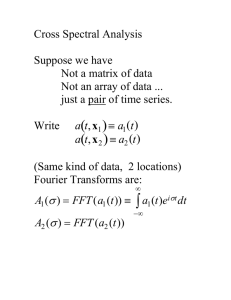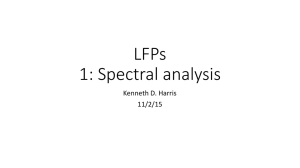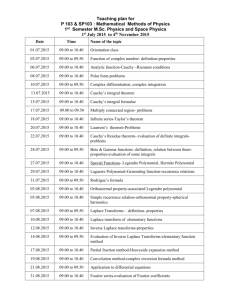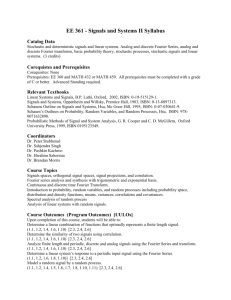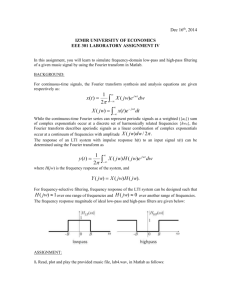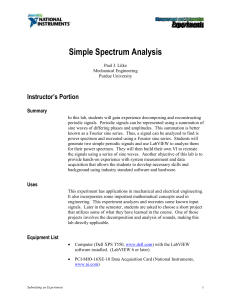Using Fourier Spectrum Method to Analyze Earthquakes in Central
advertisement
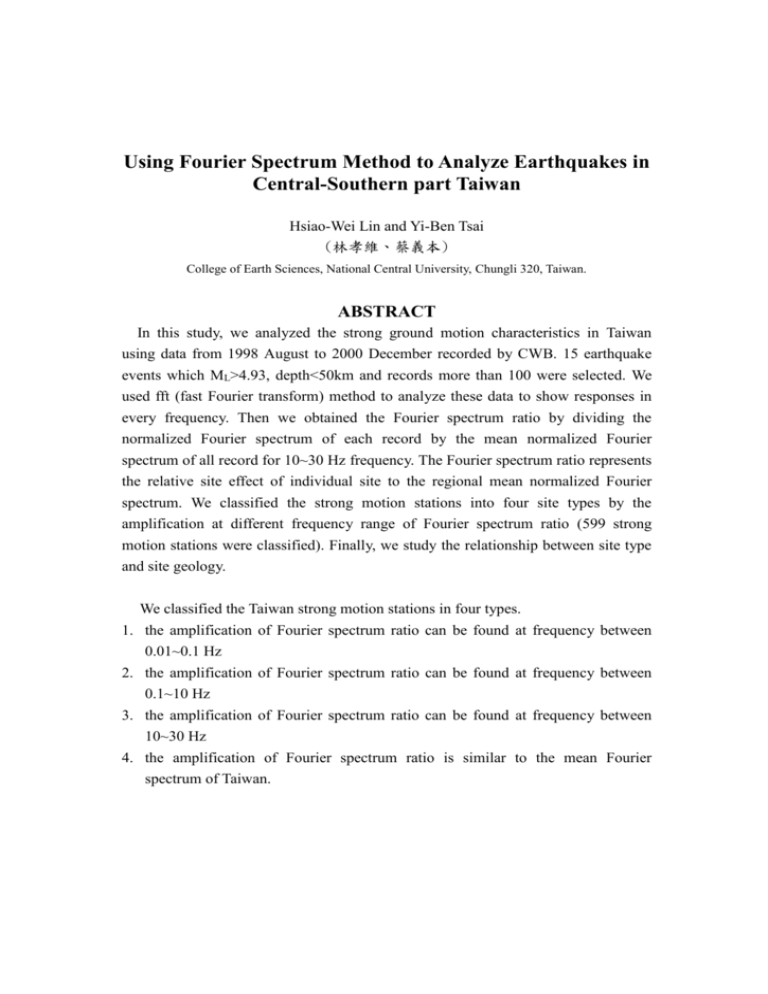
Using Fourier Spectrum Method to Analyze Earthquakes in Central-Southern part Taiwan Hsiao-Wei Lin and Yi-Ben Tsai (林孝維、蔡義本) College of Earth Sciences, National Central University, Chungli 320, Taiwan. ABSTRACT In this study, we analyzed the strong ground motion characteristics in Taiwan using data from 1998 August to 2000 December recorded by CWB. 15 earthquake events which ML>4.93, depth<50km and records more than 100 were selected. We used fft (fast Fourier transform) method to analyze these data to show responses in every frequency. Then we obtained the Fourier spectrum ratio by dividing the normalized Fourier spectrum of each record by the mean normalized Fourier spectrum of all record for 10~30 Hz frequency. The Fourier spectrum ratio represents the relative site effect of individual site to the regional mean normalized Fourier spectrum. We classified the strong motion stations into four site types by the amplification at different frequency range of Fourier spectrum ratio (599 strong motion stations were classified). Finally, we study the relationship between site type and site geology. We classified the Taiwan strong motion stations in four types. 1. the amplification of Fourier spectrum ratio can be found at frequency between 0.01~0.1 Hz 2. the amplification of Fourier spectrum ratio can be found at frequency between 0.1~10 Hz 3. the amplification of Fourier spectrum ratio can be found at frequency between 10~30 Hz 4. the amplification of Fourier spectrum ratio is similar to the mean Fourier spectrum of Taiwan. Fig1. Site Class 1 Fig3. Site Class 3 Fig2. Site Class 2 Fig4. Site Class 4
